Xi Leng
ADHint: Adaptive Hints with Difficulty Priors for Reinforcement Learning
Dec 15, 2025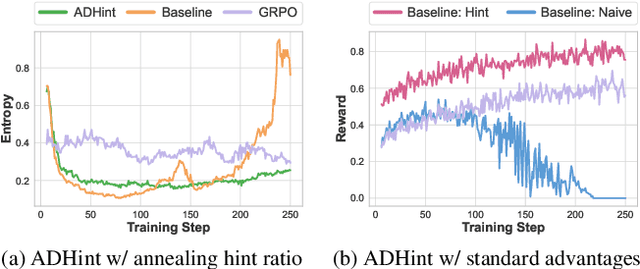
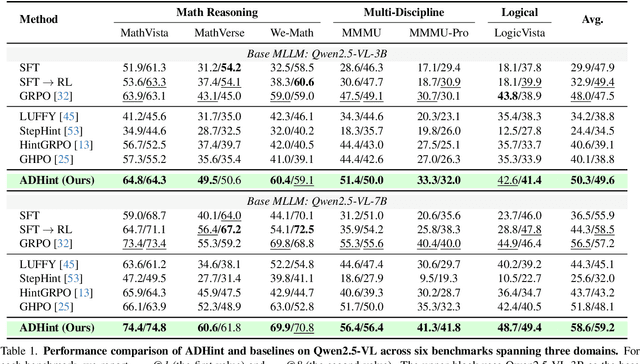
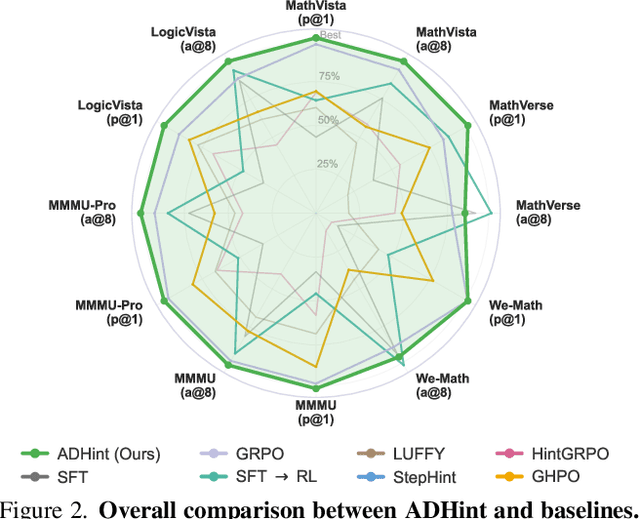
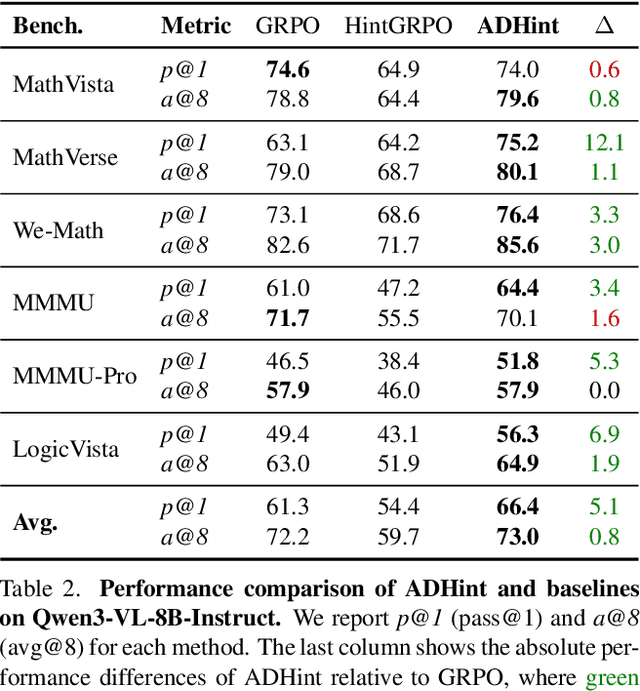
Abstract:To combine the advantages of Supervised Fine-Tuning (SFT) and Reinforcement Learning (RL), recent methods have integrated ''hints'' into post-training, which are prefix segments of complete reasoning trajectories, aiming for powerful knowledge expansion and reasoning generalization. However, existing hint-based RL methods typically ignore difficulty when scheduling hint ratios and estimating relative advantages, leading to unstable learning and excessive imitation of off-policy hints. In this work, we propose ADHint, which treats difficulty as a key factor in both hint-ratio schedule and relative-advantage estimation to achieve a better trade-off between exploration and imitation. Specifically, we propose Adaptive Hint with Sample Difficulty Prior, which evaluates each sample's difficulty under the policy model and accordingly schedules an appropriate hint ratio to guide its rollouts. We also introduce Consistency-based Gradient Modulation and Selective Masking for Hint Preservation to modulate token-level gradients within hints, preventing biased and destructive updates. Additionally, we propose Advantage Estimation with Rollout Difficulty Posterior, which leverages the relative difficulty of rollouts with and without hints to estimate their respective advantages, thereby achieving more balanced updates. Extensive experiments across diverse modalities, model scales, and domains demonstrate that ADHint delivers superior reasoning ability and out-of-distribution generalization, consistently surpassing existing methods in both pass@1 and avg@8. Our code and dataset will be made publicly available upon paper acceptance.
FedRec+: Enhancing Privacy and Addressing Heterogeneity in Federated Recommendation Systems
Oct 31, 2023Abstract:Preserving privacy and reducing communication costs for edge users pose significant challenges in recommendation systems. Although federated learning has proven effective in protecting privacy by avoiding data exchange between clients and servers, it has been shown that the server can infer user ratings based on updated non-zero gradients obtained from two consecutive rounds of user-uploaded gradients. Moreover, federated recommendation systems (FRS) face the challenge of heterogeneity, leading to decreased recommendation performance. In this paper, we propose FedRec+, an ensemble framework for FRS that enhances privacy while addressing the heterogeneity challenge. FedRec+ employs optimal subset selection based on feature similarity to generate near-optimal virtual ratings for pseudo items, utilizing only the user's local information. This approach reduces noise without incurring additional communication costs. Furthermore, we utilize the Wasserstein distance to estimate the heterogeneity and contribution of each client, and derive optimal aggregation weights by solving a defined optimization problem. Experimental results demonstrate the state-of-the-art performance of FedRec+ across various reference datasets.
Diversity Boosted Learning for Domain Generalization with Large Number of Domains
Jul 28, 2022


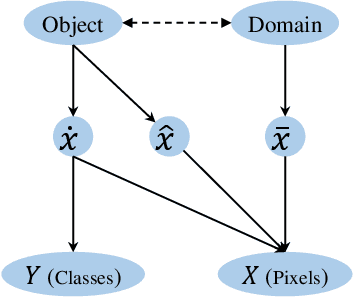
Abstract:Machine learning algorithms minimizing the average training loss usually suffer from poor generalization performance due to the greedy exploitation of correlations among the training data, which are not stable under distributional shifts. It inspires various works for domain generalization (DG), where a series of methods, such as Causal Matching and FISH, work by pairwise domain operations. They would need $O(n^2)$ pairwise domain operations with $n$ domains, where each one is often highly expensive. Moreover, while a common objective in the DG literature is to learn invariant representations against domain-induced spurious correlations, we highlight the importance of mitigating spurious correlations caused by objects. Based on the observation that diversity helps mitigate spurious correlations, we propose a Diversity boosted twO-level saMplIng framework (DOMI) utilizing Determinantal Point Processes (DPPs) to efficiently sample the most informative ones among large number of domains. We show that DOMI helps train robust models against spurious correlations from both domain-side and object-side, substantially enhancing the performance of the backbone DG algorithms on rotated MNIST, rotated Fashion MNIST, and iwildcam datasets.
 Add to Chrome
Add to Chrome Add to Firefox
Add to Firefox Add to Edge
Add to Edge